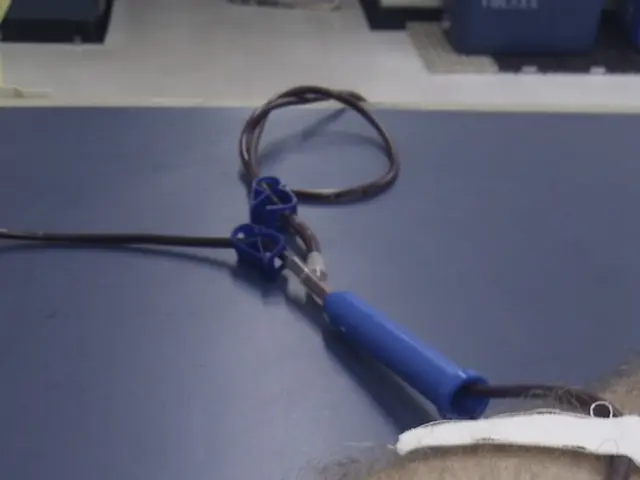Recognizing ADHD-Related Procrastination: Crucial Symptoms and Strategies
In the complex world of attention deficit hyperactivity disorder (ADHD), procrastination can often be a significant challenge. Here are some signs that ADHD might be causing your procrastination, along with strategies to address these issues:
- Difficulty focusing and sustaining attention on tasks, especially those that are less interesting or require sustained mental effort. People with ADHD may get easily distracted, zone out, or daydream, which leads to delaying task initiation or completion.
To address this, break tasks into smaller, manageable steps to reduce overwhelm and improve focus. Additionally, creating a distraction-free workspace can help reduce distractions.
- Executive dysfunction, such as trouble with planning, organizing, managing time, and prioritizing tasks. This results in difficulty starting and completing projects on time and frequent procrastination.
To combat executive dysfunction, prioritize tasks actively and set clear deadlines. A solution for the task prioritizing challenge is to create a task hierarchy using the Eisenhower Box and set clear goals with specific deadlines. Using tools like apps such as Trello can help organize tasks and deadlines.
- Time blindness, a impaired perception and management of time, causing chronic lateness and underestimation of how long tasks take. This makes it hard to stick to schedules and deadlines, contributing to procrastination.
Addressing time blindness includes using external reminders and time management tools such as alarms, timers, and planners, including adding extra buffer time for tasks. The Pomodoro Technique, which breaks work into manageable intervals, can also be beneficial.
- Impulsivity and emotional dysregulation, where frustration and mood swings make it challenging to focus on tasks and increase avoidance behaviors like procrastination.
To manage impulsivity and emotional dysregulation, seek professional support such as ADHD coaching, cognitive behavioral therapy, or medical evaluation. Addressing fear of failure includes adopting a growth mindset and showing self-compassion.
- Sensory processing issues, such as sensory hyper- or under-responsiveness, which can affect how a person with ADHD processes their environment, sometimes making task engagement overwhelming or distracting, leading to procrastination.
Creating structured routines and organized environments can help minimize distractions and misplacing items. Setting boundaries for less productive activities can also help manage hyperfocus.
In addition to these strategies, lifestyle tweaks such as exercise can boost dopamine levels and motivation. Meditation can be beneficial for improving focus. Accountability partners can help keep you on track with your goals.
Remember, ADHD is a neurodevelopmental disorder marked by inattention, hyperactivity, and impulsivity. Understanding these signs and implementing effective strategies can help you overcome procrastination and lead a more productive life.
- Maintaining productivity can be a challenge for individuals with ADHD, as they may struggle with sustained attention, leading to mental health issues like stress and anxiety associated with procrastination.
- To cope with the executive dysfunction often experienced by those with ADHD, mindfulness practices such as meditation can help improve focus and reduce stress, thus facilitating task completion.
- A nutritious diet and regular fitness-and-exercise routine are key components of health-and-wellness, and can boost energy levels and productivity in individuals with ADHD, reducing feelings of overwhelm that can lead to procrastination.
- Pursuing education-and-self-development opportunities can foster personal-growth, enabling individuals with ADHD to develop strategies for managing their symptoms and promoting career-development.
- Seeking support from mental-health professionals, such as therapists or coaches, can provide valuable insights and resources for managing ADHD, improving mental health, and reducing procrastination.





